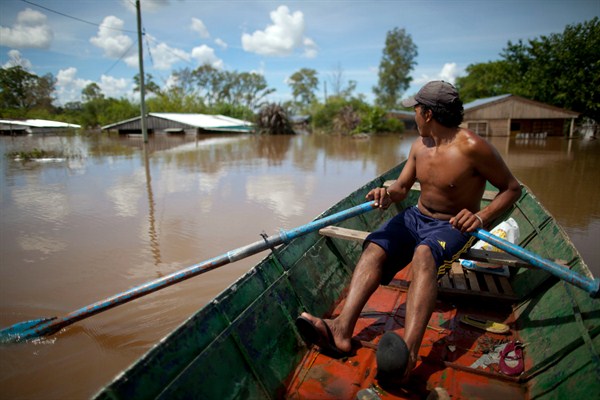The global weather event known as El Niño has been blamed for droughts in Central America and northern South America and record-breaking floods in Argentina, Brazil and Paraguay. But some scientists warn that the worst could be yet to come. El Niño poses major challenges for Latin America’s governments, some of which are in the midst of economic and political crises. The weather phenomenon is also testing their ability to face the growing threat of climate change, now and in the future.
Scientists believe that El Niño, a warming of the central and eastern Pacific Ocean about once every decade that affects weather patterns around the world, has been happening for centuries, but the current El Niño is entering new territory. It broke temperature records in November, when Pacific surface waters rose to 5.4 degrees Fahrenheit, or 3 degrees Celsius, above average, alarming researchers. This El Niño has been linked to droughts in Africa that have pushed millions toward famine and the heavy rains that flooded vast swaths of the southeastern United States in December and January, among other extreme weather events. The World Meteorological Organization and World Health Organization recently estimated that the current El Niño has affected 60 million people around the world through everything from droughts and floods to increased incidence of diseases.
El Niño has a particular significance for Latin America. It was supposedly named by a Peruvian fisherman, who called it El Niño—the Spanish term for Baby Jesus—since it resulted in abnormally warm water and poor fishing around Christmas. Because its epicenter is in the Pacific Ocean to the west of Ecuador and Peru, those two countries have suffered widespread destruction during past El Niños. The Economic Commission for Latin America and the Caribbean (ECLAC) estimated that the 1997-1998 episode—the most destructive on record—caused $6.35 billion of damage to homes, infrastructure and crops in Peru and Ecuador alone. However, those two countries have so far suffered little damage this time around.

